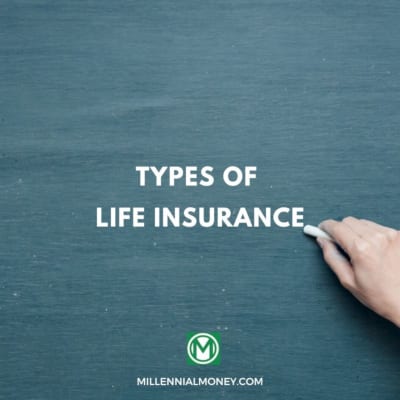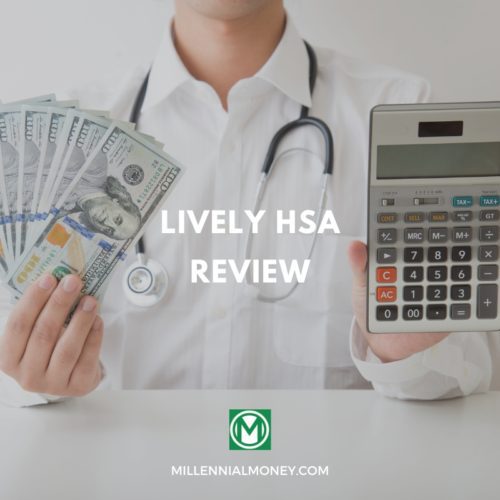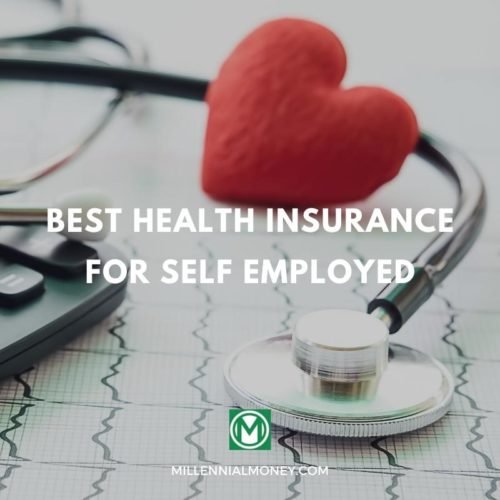Let’s be clear: If your house burns down or your health falls apart, insurance won’t make everything better.
Insurance simply can’t protect you from the unpredictable nature of life.
But insurance can and should help you build a new life if tragedy strikes. Insurance can protect you from losing everything.
You can insure anything from your smartphone to your pet’s teeth, but that doesn’t mean you should.
Instead, let’s start with the coverages you most likely need.
It can insulate you from unexpected expenses.
9 Types of Insurance You Need To Consider
Here are 9 of the most popular types of insurance policies to consider:
- Auto Insurance
- Disability Insurance
- Health Insurance
- Homeowners Insurance
- Life Insurance
- Pet Insurance
- Renters Insurance
- Small Business Insurance
- Travel Insurance
1. Auto Insurance
Auto insurance policies consists of these coverages:
- Liability: Protects other drivers in case you cause a wreck that damages their car and leads to health care bills.
- Collision: Protects your own car’s value if you cause a wreck.
- Comprehensive: Protects your car’s value from weather damage, theft, and other perils not caused on the highway.
- Other Coverages: You can opt for medical coverage to supplement health coverage after a wreck and for coverage to protect you against a driver who doesn’t have enough insurance.
If you have a car, your state most likely requires you to buy liability insurance coverage. (New Hampshire still doesn’t.)
If you owe money on your car, your lender will require you to protect the car with comprehensive, and collision coverage.
It’s easy to find coverage online. Be sure to check customer reviews and, more importantly, grades from independent insurance ratings agencies that analyze the financial health of auto insurance companies
Other coverages similar to auto insurance include:
- Motorcycle Insurance
- RV Insurance
- Boat Insurance
2. Disability Insurance
The Social Security Administration says 1 in 4 millennials will miss extended periods of work at some point in their careers because of an injury or a serious illness.
If you got sick or injured and couldn’t work, disability insurance coverage could replace 50% – 60% of your income so you could keep paying the bills.
There are two primary types of disability insurance:
- Short-term Disability: Typically kicks in two weeks after a qualifying illness or injury and pays for a few months or possibly a full year.
- Long-term Disability: This usually begins after a 90-day waiting period and can replace part of your income for months, years, or possibly until you reach retirement age.
Both usually cost about the same amount in premiums — about 1 to 3 percent of your annual salary — but you get a lot more potential return from a long-term disability policy.
Rather than buying a short-term disability policy, you could simply save and keep three months worth of income in an emergency fund.
3. Health Insurance
Health insurance has always been a good idea; however, since Congress passed the Affordable Care Act in 2010, health coverage has also been required by federal law.
You can get coverage for yourself and your family. Kids can now stay on their parents’ health insurance plans up to age 26.
With health insurance policies, you’ll pay:
- Premiums: Regular payments that keep your policy active.
- Copayments: Out-of-Pocket fees each time you visit a physician or get a prescription filled, usually ranging from $10 to $60.
- Deductibles: The amount of money you’d have to spend out of your own pocket in a given year before your insurance policy started paying on your behalf.
Typically, the more you pay in premiums, the less you’ll need to pay in deductibles and copayments.
Here’s what you get:
- Medical Bill Payments: Your doctor, hospital, the pharmacy will send the bill to your insurance company, minus your copay and deductible. If the expense is covered, your insurer will cover their share.
- Peace of mind: If you’re struck by a major medical problem and need hundreds of thousands of dollars worth of care, you won’t face the entire bill alone.
You can buy health insurance from the following:
- Employer: If you can get health benefits from work, you should probably take advantage because your employer likely pays for part of your premiums.
- Private Insurer: You can buy your own policy from a health insurance company or through an independent insurance agent.
- The Exchange: The healthcare.gov website can connect you with an insurance plan and help you pay for it through tax credits.
- Free Coverage: Depending on your income and your state’s rules, you may qualify for Medicare or Medicaid. Even if you don’t qualify, your kids might.
You may also find dental and vision insurance through these same channels.
4. Homeowners Insurance
Laws may not require you to buy a homeowners insurance policy, but your mortgage company probably does.
And, since your home is probably your biggest investment, you’d want solid coverage anyway.
Here’s what you have to pay with home insurance:
- Premiums: This payment keeps your coverage active. The average premium for a homeowners policy is about $1,000 to $1,500 a year.
- Deductibles: Amount spent out-of-pocket you would pay before your policy would pay for repairs.
Here’s what you get:
- Claims: Money to repair or replace your home’s structure and any other buildings on your property along with money to replace personal belongings damaged, destroyed, or stolen.
- Peace of mind: You can’t stop a hurricane or earthquake from damaging your home. You can’t prevent all vandalism and burglaries. But the right homeowners policy can help you pick up the pieces.
5. Life Insurance
If someone, like your spouse, your children, your grandchildren, your aging parents — depend on you financially, you probably need life insurance.
If you died with a life insurance policy in force, your family could claim your policy’s death benefit. They could use the money to pay off the house, to save for college, or to continue paying bills without your income.
Types of Life Insurance:
- Term Life: These policies last for a specific period of time, usually 10, 20, 25, or 30 years. When the term runs out, the coverage expires. Because they expire, term life policies can offer more coverage for less money in premiums.
- Whole Life: These policies can last for the rest of your life. Along with your death benefit, they also accrue a separate cash value over time. You can use this cash later in life to borrow against, or you can cash out the value if you cancel the policy. Whole life policies usually cost significantly more than term life policies.
- No Exam: These life insurance policies can be obtained without the need for a medical exam, but this usually comes with slightly higher premiums. It could be ideal if you have a pre-existing health condition and have previously been declined life insurance due to your medical exam; however, if you are in good health, you’ll qualify for the best rates going through more traditional routes with a medical exam.
Many life insurance companies offer life coverage online, but you may benefit from some guidance from an independent life insurance agency.
Continue Reading:
6. Pet Insurance
Health care for your pets costs a lot. Whether you’re going in for regular checkups and vaccines or because your pet needs emergency surgery, the vet’s bill will be hundreds if not thousands of dollars.
Pet insurance can reimburse you for some of these costs. Policies typically come in three varieties:
- Wellness Care: Helps pay for routine checkups, vaccines, and screenings.
- Accident Care: Helps pay for treatment after your pet gets injured in an accident.
- Comprehensive Care: Pays on both routine wellness visits and treatment for unexpected accidents.
Of these types, accident care has the most potential to help with unexpected expenses. Accident-only plans can typically start around $6 per month.
Wellness visits tend to cost the same from year to year which means you could plan for this expense without needing insurance.
Be sure to check out your policy’s spending caps and find out whether the caps apply to the year, the accident, or the lifetime of your pet.
With most pet insurance policies, you pay the vet out of pocket and then file for reimbursement from your insurer.
7. Renters Insurance
Renters insurance works in a similar way to homeowners, but it doesn’t cover the structure of your apartment. Your landlord should have insurance for that purpose.
Your landlord’s insurance; however, will not cover accidents that happen in you home or your personal belongings if they’re damaged or destroyed because of a natural disaster, fire, or break-in. You need your own renter’s insurance policy to provide this protection.
Like auto coverage, you can buy homeowners or renters insurance online, or you can work with an independent agent.
You can save money on premiums buying a policy with higher deductibles. In exchange, you’d have to pay more out of pocket before your coverage kicks in. Some of the best companies have plans starting around $5 per month.
8. Small Business Insurance
A small business can become the engine driving your financial dreams.
Business insurance should help you avoid a variety of obstacles that could derail your plans. These coverages can help most businesses protect themselves from unexpected costs.
- Liability coverages: Lawsuits pose a particular danger to small businesses because they don’t usually have legal departments. Liability coverage can help protect you from an expensive court ruling. General liability covers the basics; professional, product, and employment practices liability offer more specialized protections as needed.
- Property and Auto: Just like you need homeowners and auto policies to protect your personal property and liability, your business needs property and auto policies. Property coverage can protect your buildings, inventory, and equipment.
- Key person: A lot of small businesses depend heavily on their partners and top executives. If one of these key people died unexpectedly, your business could suffer and may not survive the transition. Getting a life insurance policy on partners and top execs can help your business avoid this potential problem. Be sure to list the business as the policy’s beneficiary.
9. Travel Insurance
If you’re planning a long, global trip, it makes sense to protect the money you’ve spent planning the trip with a travel insurance policy.
Travel insurance can help with:
- Trip Cancellation: If you’ve bought non-refundable airline tickets or accommodations, travel insurance could still help you reclaim these costs if you have to cancel the trip.
- Theft: Travelers in new locales tend to be more vulnerable to pickpockets or more aggressive forms of theft. Trip coverage can help you recover the value of your stolen items.
- Medical Treatment: If your domestic health insurance can’t help pay your medical bills in another country, travel insurance can often reimburse you for the cost of emergency medical care.
- Relocating: Political turmoil, riots, natural disasters — it’s a dangerous world. Travel insurance can help you evacuate and recover lost expenses.
- Extra Help: The best trip insurance carriers have 24-hour operators available in case you need help, from roadside assistance to translating directions.
You probably won’t need travel insurance for shorter trips within the country. You also need to check if coverage will protect you from cancellations due to COVID-19 coronavirus.
It’s up to you, as the traveler, to decide.
What Types of Insurance Coverage Do You Need?
Aside from the times that state or federal laws require you to have insurance, you have the freedom to decide what kind and how much insurance to buy.
Before deciding, take a few minutes to imagine the worst: a house fire, an untimely death, a collision on the highway, a serious illness, or an injury that prevents you from working.
Insurance can’t fix these tragedies. But it can and should provide the tools you’d need — or the tools your surviving family members would need — to start rebuilding a new life.





Read 1 comment or add your own
Read Comments